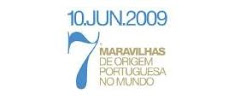
Synopsis:
Mariana, seventeen, is a high school student living on the outskirts of Lisbon. One day, she is caught in a desperate situation: having been raped by a drug addict, she later finds that she is pregnant.
Out of fear, shame or anger she decides to conceal it from everybody else - her parents, boyfriend, friends, the police and the court - and cope with it on her own.
Only one tenacious Police Inspector, a guardian angel of sorts, and a down-to-earth prostitute witness the secret passage of this young woman's survival through rape, subsequent pregnancy and possible HIV infection. She is thus forced to go across this "passage" leading into a tangled and troublesome adult life.
Cast:
LEONOR SEIXAS - Mariana
JOÃO RICARDO - Vítor
JOÃO PEDRO VAZ - Salvador
MARIA JOÃO FALCÃO - Teresa
CRISTÓVÃO CAMPOS - Luís
MARIA D'AIRES - Maria
POMPEU JOSÉ - José
MARIA RUEFF - Cláudia
LUÍSA SALGUEIRO - Celeste
CECÍLIA GUIMARÃES - Salvador's Aunt
FERNANDO HEITOR - Filosophy teacher
PAULA PEDREGAL - Portuguese teacher
ANA BUSTORFF - History teacher
JOHN JESUS ROMÃO - Jorge
LUÍS AREIAS - Student 2
TERESA FARIA - Butcher's client
FERNANDO CENTEIO - Police officer 1
ELSA GALVÃO - Social Worker
VIRGÍLIO CASTELO - Public defender
ROGÉRIO SAMORA - Lawyer
LUÍS LUCAS - Judge
CRISTINA CAVALINHOS - Nurse
FÁTIMA MOREIRA - Waitress
crew:
Casting
MARGARIDA ROBERTO
Costumes
MARIA GONZAGA
Décor
ANA LOURO
Cinematography
EDGAR MOURA
Sound
CARLOS ALBERTO
Editing
ANTÓNIO PÉREZ REINA
Original Music
LUÍS CÍLIA
Production Director
FERNANDO CENTEIO
Producer
PAULO BRANCO
A co-production
MADRAGOA FILMES
RTP - RADIOTELEVISÃO PORTUGUESA
GEMINI FILMES
With the support
ICAM - INSTITUTO DO CINEMA, AUDIOVISUAL E MULTIMÉDIA
Screenplay | Dialogues | Director
LUÍS FILIPE ROCHA
director's statement:
In a former life, I lived on an Island in the Indic Ocean. One day, I ran into this fifteen-year old girl who had abandoned the baby she had given birth to, by herself, on the beach, after nine months of secret pregnancy. That girl's solitude, grit and moral fortitude stirred me so much that, thirty years down the line, the memory of that fleeting and insular encounter pushed me into the making of A Passagem da Noite.
Despite the fact that teenagers make for the majority of the cinema-going public, there aren't many films on adolescence in Portuguese cinema. There-fore, it didn't seem out of place to come back to that subject: to a certain extent, "THE NIGHT PASSAGE" is a sequel to "GOODBYE FATHER". The thir-teen-year-old boy had to deal with the "mysteries" of sexuality, and of life itself, alone. This time, it's the seventeen-year old girl that, once again on her own, has to face and deal with facts, rather than "mysteries", of a brutal and unredeemable nature.
THE NIGHT PASSAGE is, like every other film I've directed so far, an actors' film. Although I do not make films because of them, it is for them, first and foremost, that I make them. And it's only fair that I do so: in the thorny path that is the creative process of making a film, actors, more than anything or anybody else, move me, surprise me, question me, provoke me, resist me and push me into going beyond my own expectations. Thus, when all is said and done, they are my films.
A film, once it is finished, has a life of its own: it is the sum total of the bits and scraps of the lives that were lived through in order to make it. From then on, it's the film itself that faces those that will come to see it in a dark room, in an apparent and fleeting suspension of time, and share the emo-tions and doubts, the thrill and the adventure it is made of. I always feel a twinge of melancholy envy for not being able to join them and see it for the first time.
Luís Filipe Rocha
filmography:
Lisbon 1947.
Graduated in Law in 1971.
First theatrical experiences at the age of sixteen, as an actor.
Between 1967 and 1971, he is a member of the Grupo Cénico [Theatre Group] of the Faculdade de Direito de Lisboa [Lisbon Law School], as an ac-tor, assistant stage director, author, playwright, translator and producer.
In 1973 flees into exile in Brazil, where he works in the theater with Izaías Almada.
In 1974 he starts his cinematographic career as an assistant director and documentary filmmaker and in 1976 directs his first film, "Barronhos - Who was afraid of the people's power?".
From 1976 onwards he dedicates himself exclusively to screenwriting and directing feature films.
2003 A Passagem da Noite
2000 Camarate
1996 Adeus Pai
1995 Sinais de Fogo
1991 Amor e Dedinhos de Pé
1984 Sinais de Vida-Um Breve Sumário da Vida e Obra de Jorge de Sena
1981 Cerromaior
1977 A Fuga
1976 Barronhos - Quem Teve Medo do Poder Popular




Sem comentários:
Enviar um comentário